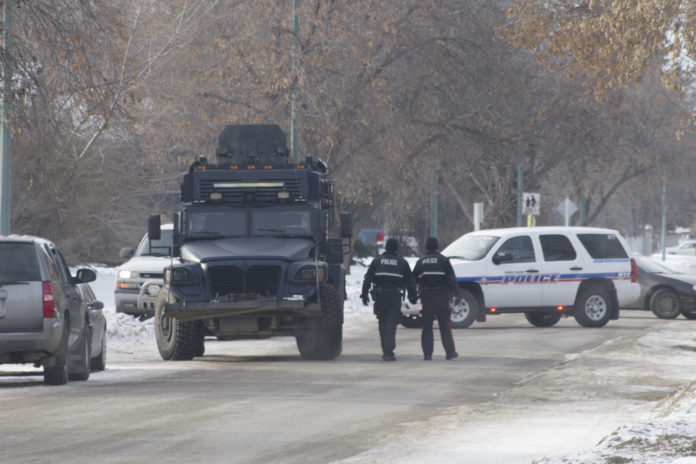
Starting in October, the Prince Albert Police Service will no longer handle dispatch duties after city council gave approval for a multi-year deal with the Saskatchewan Public Safety Agency (SPSA).
The move means all eight full-time police dispatchers and four part-time staff will move to the Provincial Emergency Communication Centre (PECC) north of the city. The deal will also give city police access to next generation 9-1-1 technologies and an in-room supervisor.
Police Chief Jon Bergen said the move would help improve the speed and quality of police dispatch services, with the potential for savings down the road.
“This provincial model is very professional,” Bergen said during a question and answer session with city council on Monday. “It really sets the standard in the province…. We visited the site and we’re quite impressed with it, so the professionalism is absolutely there.”
The deal will cost the city roughly $1,013,300 annually, a slight increase over the $982,600 it cost to run the police dispatch without outside help. The city will also pay a one-time transition cost of $90,500. That cost includes $29,000 to establish a secure connection between the PECC and PAPS main building, as well as $24,000 for new workstations, computers, monitors and other work-station equipment.
Mayor Greg Dionne wasn’t fazed by the increase in spending. He called the decision “a great move” for Prince Albert and said the access to new technologies would more than make up for any short-term spending increases. He also said there is still a chance the city could save money down the road.
“Will we save money on the initial transfer? No,” Dionne said following Monday’s council meeting. “The staff will still cost us the same, but as the Chief said, where we’re going to save money is on technology and supervision.”
Both Bergen and Dionne said the biggest barrier to improving police dispatch service was lack of space. In his report, Bergen wrote that current city police facilities were “a dated, uncomfortable space” with little room for more dispatchers or more equipment.
Dionne agreed with that assessment, and said it was another reason council considered the move a vital one.
“They were just jammed into there,” Dionne said. “We wanted to add a few cameras around the city and it was just not possible because there wasn’t any room (for more equipment). When we were looking at the development of our room we looked at this (option). It was an opportunity that came along and so we decided to go that route.”
While the salaries of the eight full-time and four part-time dispatchers will technically no longer be on the city books, they are included in the $1,013,300 annual payment to the SPSA.
That proved to be an obstacle for those who opposed the deal, like Ward 7 Coun. Dennis Nowoselsky, a long time critic of police spending. Nowoselsky said he had hoped the deal would allow the city to cut back on dispatcher salaries, the highest of which is $75,000 a year. All eight full-time staff are in unionized positions.
“They’re excessive salaries,” Nowoselsky said during Monday’s meeting. “I was expecting that if there’s going to be reorganization, there’s going to be some savings for taxpayers.”

